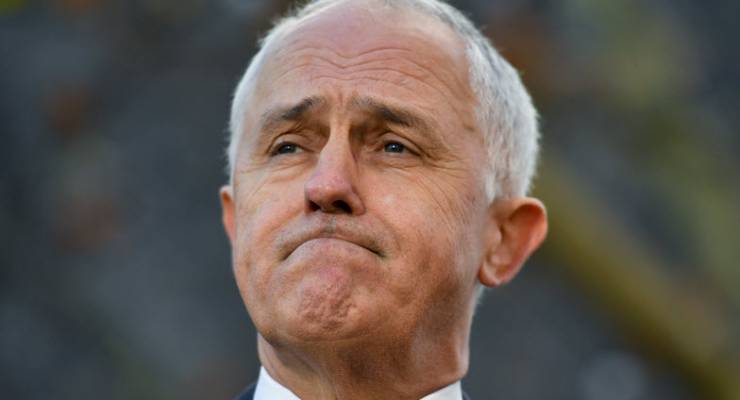
The Prime Minister has headed off a revolt by supporters of marriage equality and laid the groundwork for a risky path to a vote on marriage equality later this year after a crisis meeting of Liberal Party MPs this afternoon.
As expected, in the end there was little appetite for a change to the position the party took to the 2016 election, that there would be no parliamentary vote on marriage equality before a plebiscite on the issue; only two other MPs backed the proposed parliamentary vote advocated by Western Australian Senator Dean Smith and four lower house MPs, including veteran equality campaigner Warren Entsch.
Instead, as per the position put to the party room by Malcolm Turnbull and the party leadership, the government will make another effort to pass legislation for a plebiscite through the Senate, which previously rejected it. If that fails, as seems likely, then the government will undertake a voluntary postal plebiscite without legislation. If that plebiscite is successful, there will be a parliamentary vote, which is expected to result in amendments allowing marriage equality and overturning of the Howard government’s changes to legislation in 2004.
However, a postal plebiscite conducted without legislation will be immediately challenged by marriage equality groups. There remain significant concerns that any use of funds for an unlegislated plebiscite would be illegal; however the government claims it has advice that an unlegislated plebiscite would be upheld by courts. The idea also has its critics within the party room — most prominently Tony Abbott, whose plebiscite policy is the cause of this extended period of bitter division with Liberal ranks.
A postal plebiscite will almost certainly be subject to boycotts from marriage equality supporters, and possibly other political parties, strengthening the likelihood of a no vote despite several years of polling showing electoral support for marriage equality. In the event of a no vote, there would be no parliamentary vote — an outcome that would guarantee the issue continues to plague the government until it is resolved either by Parliament or by an election.
Apart from the risks of a postal plebiscite, it remains to be seen whether marriage equality advocates are prepared to accept the process laid down by the party leadership, or back a parliamentary vote anyway — especially if a postal plebiscite is defeated by the courts or yields a no vote due to boycotts.
The outcome enables Malcolm Turnbull to argue that he has thrown his support behind a plebiscite despite the efforts of moderate efforts, but it also provides a tenuous path to a vote in Parliament that would finally get the issue off the political agenda. But it guarantees the issue will not be far from the headlines for weeks, and possibly months, to come, and merely delays a final reckoning between die-hard homophobes within the party and those who advocate an end to discrimination in marriage law. One way or another, however, that it likely before the end of the year.








Crikey is committed to hosting lively discussions. Help us keep the conversation useful, interesting and welcoming. We aim to publish comments quickly in the interest of promoting robust conversation, but we’re a small team and we deploy filters to protect against legal risk. Occasionally your comment may be held up while we review, but we’re working as fast as we can to keep the conversation rolling.
The Crikey comment section is members-only content. Please subscribe to leave a comment.
The Crikey comment section is members-only content. Please login to leave a comment.